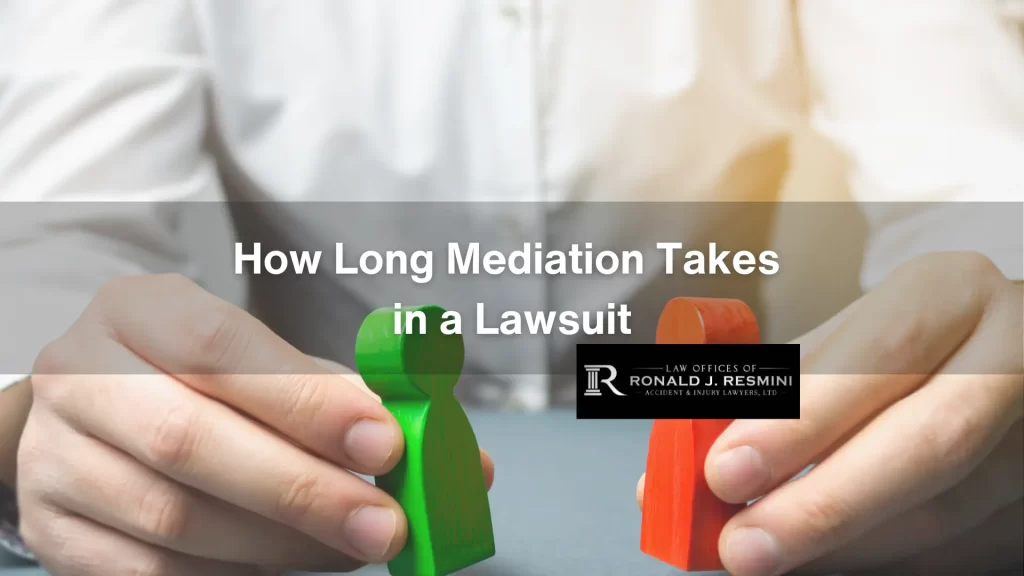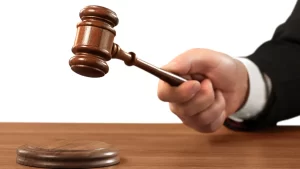 Mediation often occurs after settlement negotiations with an insurance company fail. It takes place before your lawsuit goes to trial. Mediation is often your final chance to reach a settlement agreement before a court decides the outcome of your case. How long the mediation process takes depends on several factors, discussed below.
Mediation often occurs after settlement negotiations with an insurance company fail. It takes place before your lawsuit goes to trial. Mediation is often your final chance to reach a settlement agreement before a court decides the outcome of your case. How long the mediation process takes depends on several factors, discussed below.
What Is Mediation?
Mediation is a process that lets parties resolve their dispute with the help of a neutral third party. It often involves shorter sessions that last several hours to a day or two. A mediator leads these sessions, but they don’t act as a judge and decide the case themselves. Their job is to facilitate communication and provide suggestions for potential resolution.
Usually, the process will involve the following:
- Opening statements: It will usually start with the mediator introducing themselves. They will also explain the process and their role. Then, each party’s attorney will make an opening statement presenting their side of the case and the outcome they seek.
- Identification of issues: The mediator will help the parties identify and narrow their issues to those holding up negotiation.
- Negotiation: The parties will engage in a negotiation facilitated by the mediator. Depending on how contentious the situation is, they may have to go back and forth until they can agree upon an offer. During negotiations, the mediator may suggest solutions and identify potential options. They will try to keep the parties on track in hopes of reaching an agreement.
Mediation can be beneficial in reaching a mutual resolution while saving time and money.
How Long Should Mediation Last?
Mediation may be completed within a few hours or take several days. The duration largely depends on the following:
- The complexity of the case: The more complex the case, the longer mediation will likely take. Complex cases usually involve a number of legal issues and significant factual disputes. As a result, it can take a long time to sort through the evidence and reach a mutual agreement.
- The number of parties involved: The more parties involved, the longer mediation can take. This is because each party has interests and priorities to consider. As a result, when there are multiple parties, it can take longer to reach a mutually acceptable agreement.
- The willingness of parties to compromise: Mediation is usually only successful when parties are willing to compromise. This is because, to settle, parties need to agree on specific issues. This can be challenging when they have opposing viewpoints.
- Availability of the mediator: Mediators may have limited availability. Therefore, if you need multiple sessions, mediation completion may take several weeks because the mediator cannot meet immediately.
- Timing of mediation: If it is scheduled too early, discussions may not be as meaningful. This is because parties are less likely to make necessary compromises early in the legal process. On the other hand, if mediation occurs too late, some parties may be unwilling to compromise because of the time and money already invested in litigation.
When determining if mediation will work for you, you will want to consider these factors and whether it is worth participating in.
What Happens After Mediation?
If it ends in a resolution, the parties will sign a written mediation agreement. If it was court-ordered, the agreement will be legally binding. Once the agreement is binding, you can enforce it in court if the other party breaches it.
Mediation does not always end with a mutually acceptable agreement. If it becomes clear that further negotiations will not lead to a fair settlement, you may choose to go to court.
Read more: What Happens After Mediation
How Long After Mediation Can You Go to Court?
 There is no specific timeframe for going to court after mediation. Once you proceed to court, the judge will work with the parties and their attorneys to schedule dates. Depending on the complexity of your case, the trial can last one or several days or several weeks or months.
There is no specific timeframe for going to court after mediation. Once you proceed to court, the judge will work with the parties and their attorneys to schedule dates. Depending on the complexity of your case, the trial can last one or several days or several weeks or months.
Once the court issues a decision in your case, it will be final. The decision becomes legally binding at that point, and you can’t negotiate changes. Therefore, going to court is usually a last resort after mediation fails.
Contact The Law Offices of Ronald J. Resmini, Accident & Injury Lawyers, Ltd.
The outcome of mediation depends on the facts of your case. Having the right legal team to preserve your rights and fight for your best interests is vital. The experienced attorneys of The Law Offices of Ronald J. Resmini, Accident & Injury Lawyers, Ltd. have experience representing personal injury clients – and we have the results to prove it.
To discuss your options during a free and confidential consultation, contact us online or at (401) 751-8855.
